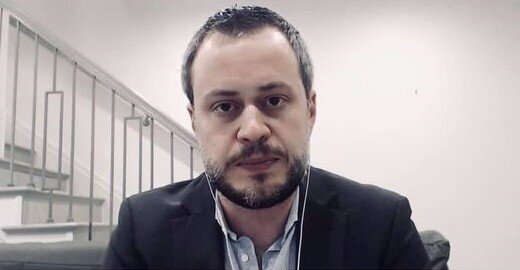Beijing pursuing balanced foreign policy in Persian Gulf: GSA chief

TEHRAN - Giorgio Cafiero, chief executive officer of Gulf State Analytics (GSA), tells the Tehran Times that “the Chinese pursue a balanced foreign policy agenda in the Persian Gulf.”
The comments by Cafiero comes as Saudi Arabia is building its own ballistic missiles with the help of China, according to United States intelligence assessments and satellite images.
Cafiero also says though there is “no evidence to suggest that the Chinese are intent on replacing the U.S. as Saudi Arabia or other Gulf Cooperation Council (GCC) member-states’ security guarantor,” Beijing, Paris, and Moscow and noticing that “some of America’s traditional allies and partners in the Arab world are doubting Washington's long-term commitment to their security.”
The assessment of U.S. intelligence agencies is that the Saudi kingdom, which is long thought to have acquired missiles from Beijing, is now manufacturing its own, according to a source familiar with the matter and a U.S. official.
Political pundits say this is not a new development that some Arab states in the Persian Gulf region, such as Saudi Arabia and the United Arab Emirates, are revising their policy approaches towards the U.S.
Following is the text of the interview with Cafiero:
Q: U.S. intelligence agencies have assessed that Saudi Arabia is now actively manufacturing its own ballistic missiles with the help of China. Do you see this development as a change in China’s foreign policy in West Asia where Beijing used to invest in financial projects and not military ones?
A: China, as well as other powers such as France and Russia, see that some of America’s traditional allies and partners in the Arab world are doubting Washington's long-term commitment to their security. This is not a new development. In fact, countries in the Persian Gulf such as Saudi Arabia have spent years calling into question the wisdom of being so dependent on the U.S. for their national defense. Although there is no evidence to suggest that the Chinese are intent on replacing the U.S. as Saudi Arabia or other Gulf Cooperation Council (GCC) member-states’ security guarantor, it is safe to conclude that Beijing intends to exploit friction and decreased levels of trust between Riyadh and Washington.
The U.S. has voiced concerns about the strengthening relationship between China and several regional states such as the UAE and Israel.Q: What will be the U.S. reaction to this development given its consequences for U.S. military hegemony?
A: Under both the Trump and Biden administrations, the U.S. has voiced concerns about the strengthening relationships between China and several regional states such as the United Arab Emirates and Israel. With mixed results, the U.S. has also acted on these concerns and put pressure on these countries to somewhat back off their ties with Beijing. It is safe to bet that the Biden administration will take some actions to try to dissuade the Saudis from cooperating with the Chinese in relation to development of the kingdom’s ballistic missiles. But because the U.S. considers Saudi Arabia to be a vital strategic partner in the region, it is perhaps unlikely that Washington would ever impose sanctions on any officials or institutions in the Kingdom because of this development. In any event, as the U.S. leadership is determined to counter China and Russia’s growing geopolitical influence in the Middle East (West Asia), the struggle for influence over Riyadh will be important to monitor.
Q: How can China balance its ties with rival countries in the region, especially Iran and Saudi Arabia? Do you think the Biden administration will adopt a similar policy in West Asia, i.e. adopting a balancing role between Iranian and Saudi competition instead of supporting one side?
A: The Chinese pursue a balanced foreign policy agenda in the Persian Gulf. Beijing has positive relations with all countries in this sub-region, including both Iran and Saudi Arabia. This marks a major contrast to the U.S. which since 1979 has taken a pro-Saudi and anti-Iran position, viewing Riyadh as a close partner and Tehran as an adversary. Despite all the friction between the Biden administration and Saudi Arabia, this overall U.S. position is very unlikely to change under this current leadership in Washington.
Q: Do you think Saudi Arabia is able to produce missiles given that it is a fully dependent country in terms of military and defense?
A: In my opinion, anyone who concludes that the Saudis can’t produce these missiles domestically might be making the mistake of underestimating both the kingdom’s desires and capabilities. Furthermore, with Chinese help this is definitely possible.
Q: Do you think the Israelis consider Saudi ballistic missiles a source of threat to themselves?
A: I don’t believe so. Saudi Arabia has not been confrontational vis-à-vis Israel for decades. Although Riyadh has not entered into the Abraham Accords, the Saudis have been taking mini-steps toward normalization. There is good reason to expect this trend in Saudi-Israeli relations to continue. It’s more likely that the Israelis would be comforted by Saudi possessing such ballistic missiles considering Israel and Saudi Arabia’s shared perceptions of an Iranian threat in West Asia.
Leave a Comment